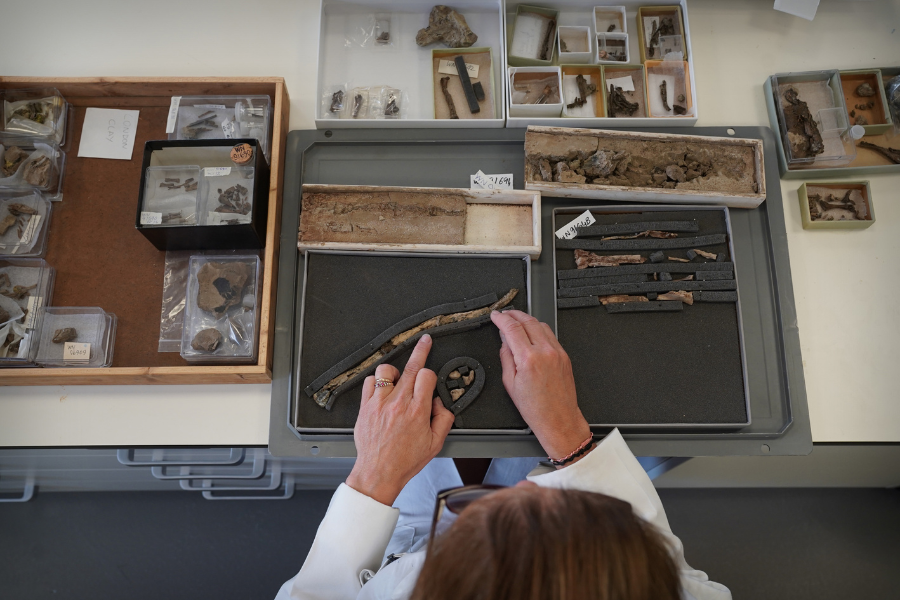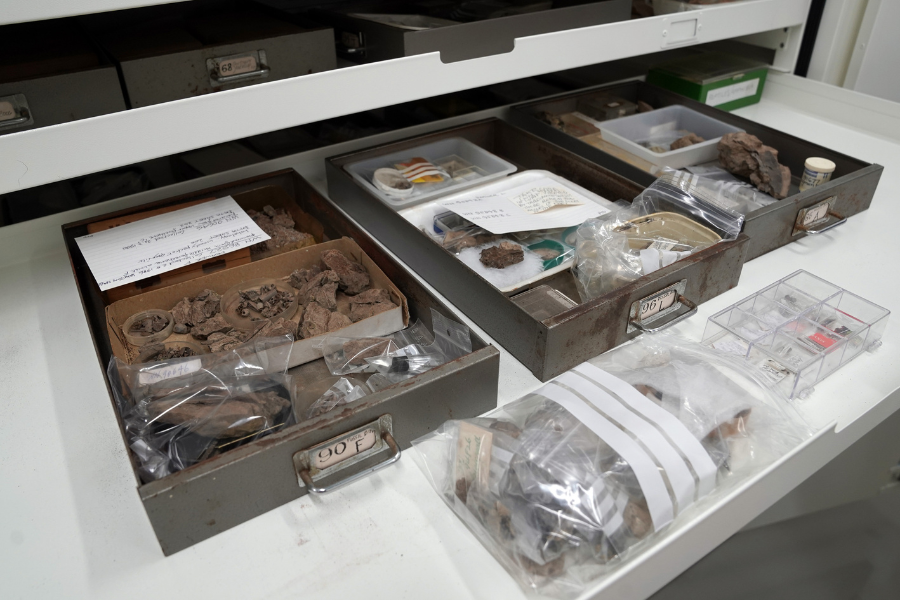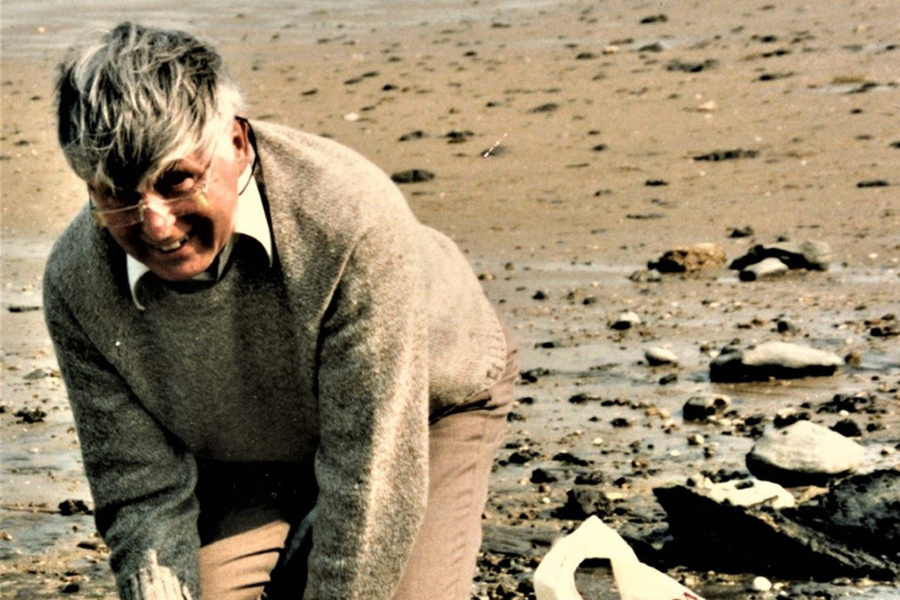
A FOSSIL collection described as "one of the most important of its type in the world" has been donated to the National Museum of Scotland.
The collection of more than 700 bird fossils dates back from 54 to 56 million years ago.
It is thought the items include many previously undiscovered species, one being a falcon-like bird and another a diver or loon.
The collection, hailed by experts as one of the most important in the world, is from the beginning of the Eocene period and represents the early stages in the evolution of modern birds.
The rare specimens were collected over the decades by amateur palaeontologist Michael Daniels, who died last year aged 90.

Daniels’ daughter lived in Edinburgh and, on a visit to the National Museum of Scotland more than 25 years ago, he shared news of his collection with the museum’s principal curator of vertebrates Dr Andrew Kitchener.
He said: “I was astonished at the amazing variety of specimens of all shapes and sizes.
“Many of the bones were miniscule, requiring great patience and skill to extract.
“The fact that the collection is now with us here at National Museums Scotland will be of interest to palaeontologists across the world."
Daniels assembled the several hundred skeletons and part skeletons that he had discovered in nodules of the London Clay – a geological formation in the south-east of England – which had eroded out of the cliffs at Walton-on-the-Naze in Essex.
Experts have said the items are unusual in terms of bird fossils in that they are preserved in 3D.
Due to their fragility and light weight, bird bones are more commonly flattened prior to fossilisation.
Work is underway to fully document the impressive findings.
Experts believe the collection could yield as many as 50 new species once research is completed.
Avian palaeontologist at the Senckenberg Research Institute in Frankfurt, Dr Gerald Mayr visited Daniels many times to view the fossils he had gathered over his lifetime.
Mayr said: “The importance of Michael Daniels’ collection cannot be overstated.

“There is nothing like it in the UK, certainly, and it is comparable to other bird-rich sites in the US, China and Germany.”
Mayr has already published two papers describing new species in the collection.
He continued: “The fact that so many specimens are preserved in three dimensions makes this one of the most important collections of its type in the world.”
The collection is now undergoing conservation and preservation work at the National Museums Collection Centre in Edinburgh, where it will be kept and made accessible to researchers.







